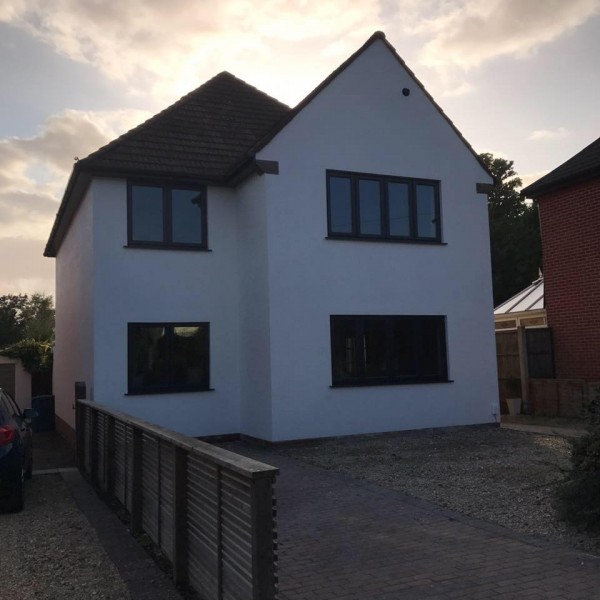Loft Conversions in Dorchester
Filter your search
Post your job FREE and let trades come to you
Save time by filling out our simple job post form today and your job will be sent to trades in your area so you can sit back, relax and wait for available trades to contact you.
Post your job FREESearch Loft Conversions in places nearby
Understanding Loft Conversions in Dorchester
Loft conversions in Dorchester have become an increasingly popular way for homeowners to maximise their living space without the need to move. With the charm of Dorchester's historic architecture, converting a loft can add significant value to your property while preserving its unique character. This article delves into the intricacies of loft conversions, providing a comprehensive guide to help you navigate this exciting home improvement project.
The Benefits of Loft Conversions
Loft conversions offer numerous advantages, making them an attractive option for many homeowners. Firstly, they provide additional living space, which can be used for various purposes such as a bedroom, office, or playroom. This extra space can enhance your quality of life by accommodating growing families or providing a quiet retreat.
Moreover, a well-executed loft conversion can significantly increase the value of your home. In Dorchester, where property prices are on the rise, this can be a wise investment. Additionally, loft conversions are often more cost-effective than building extensions, as they utilise existing space and typically require less structural work.
Types of Loft Conversions
There are several types of loft conversions to consider, each with its own set of benefits and considerations. The most common types include:
- Dormer Loft Conversion: This involves extending the existing roof to create additional headroom and floor space. Dormer conversions are popular due to their versatility and ability to accommodate various room layouts.
- Mansard Loft Conversion: Typically found in older properties, this type involves altering the roof structure to create a flat roof with a steep back wall. Mansard conversions offer substantial space but may require planning permission.
- Hip to Gable Loft Conversion: Ideal for semi-detached or detached homes with a hipped roof, this conversion extends the roof's ridge to create a vertical gable wall, increasing space and headroom.
- Velux Loft Conversion: The simplest and most cost-effective option, Velux conversions involve installing roof windows without altering the roof structure. This type is suitable for lofts with sufficient headroom.
Planning Permission and Building Regulations
Before embarking on a loft conversion in Dorchester, it's crucial to understand the planning permission and building regulations requirements. Generally, loft conversions fall under permitted development rights, meaning they don't require planning permission. However, there are exceptions, particularly for properties in conservation areas or listed buildings.
Building regulations, on the other hand, are mandatory for all loft conversions. These regulations ensure the safety and structural integrity of the conversion, covering aspects such as fire safety, insulation, and access. It's advisable to consult with a professional architect or builder to ensure compliance with all necessary regulations.
Choosing the Right Design for Your Loft Conversion
The design of your loft conversion should complement the existing style of your home while meeting your specific needs. Consider factors such as the intended use of the space, natural light, and storage solutions. Engaging with an experienced architect or interior designer can help you create a functional and aesthetically pleasing design.
In Dorchester, where many homes boast traditional architectural features, it's essential to maintain the property's character. Opt for materials and finishes that harmonise with the existing structure, ensuring a seamless transition between old and new.
Cost Considerations for Loft Conversions
The cost of a loft conversion in Dorchester can vary significantly depending on the type of conversion, the size of the space, and the quality of materials used. On average, a basic loft conversion can start from £20,000, while more complex projects may exceed £50,000.
It's important to budget for additional expenses such as planning fees, building regulations approval, and professional services. Obtaining multiple quotes from reputable builders can help you find a competitive price without compromising on quality.
Finding a Reliable Loft Conversion Specialist
Choosing the right contractor is crucial to the success of your loft conversion project. Look for specialists with a proven track record in loft conversions, preferably with experience in Dorchester. Check references, read reviews, and ask to see examples of their previous work.
Ensure that the contractor is fully insured and provides a detailed contract outlining the scope of work, timeline, and payment schedule. Clear communication and a good rapport with your contractor can help ensure a smooth and stress-free project.
Maximising Space and Functionality
To make the most of your loft conversion, consider clever design solutions that maximise space and functionality. Built-in storage, such as wardrobes and shelving, can help keep the area organised and clutter-free. Multi-functional furniture, like sofa beds or fold-away desks, can also enhance the versatility of the space.
Incorporating natural light is another key consideration. Skylights or roof windows can brighten the space and create an inviting atmosphere. If privacy is a concern, consider frosted glass or blinds to maintain a sense of seclusion.
Addressing Common Challenges in Loft Conversions
Loft conversions can present several challenges, but with careful planning and expert guidance, these can be overcome. One common issue is limited headroom, which can be addressed by selecting the right type of conversion or lowering the ceiling of the room below.
Access can also be a challenge, particularly in older properties with narrow staircases. Installing a space-saving staircase or spiral staircase can provide a practical solution without compromising on style.
Ensuring Energy Efficiency and Sustainability
Energy efficiency is an important consideration for any home improvement project. Insulating the loft space effectively can reduce heat loss and lower energy bills. Consider using sustainable materials and energy-efficient windows to enhance the environmental credentials of your conversion.
Incorporating renewable energy solutions, such as solar panels, can further reduce your carbon footprint and provide long-term savings. Consult with an energy expert to explore the best options for your home.
Legal and Insurance Considerations
Before starting your loft conversion, it's essential to address any legal and insurance considerations. Notify your home insurance provider of the planned work to ensure your policy covers the conversion. You may need to adjust your coverage to account for the increased value of your home.
If your property is leasehold, check the terms of your lease and obtain any necessary permissions from the freeholder. Failure to do so could result in legal complications down the line.
Timeline for Loft Conversion Projects
The timeline for a loft conversion can vary depending on the complexity of the project and the availability of materials and labour. On average, a loft conversion can take between 6 to 12 weeks to complete. However, factors such as planning permission delays or unforeseen structural issues can extend this timeframe.
Working with an experienced contractor who provides a detailed project schedule can help you manage expectations and minimise disruptions to your daily life.
Maintaining the Character of Dorchester Homes
Preserving the character of Dorchester homes is a priority for many homeowners undertaking loft conversions. The town's rich history and architectural heritage make it essential to approach conversions with sensitivity and respect for the original structure.
Consider using traditional materials and design elements that reflect the period of your home. Engaging with local craftsmen and suppliers can ensure that your conversion remains true to the spirit of Dorchester's architectural legacy.
Frequently Asked Questions
- Do I need planning permission for a loft conversion in Dorchester? Most loft conversions fall under permitted development rights, but it's best to check with your local council, especially if your property is in a conservation area.
- How much does a loft conversion cost? Costs can vary widely, but a basic conversion typically starts around £20,000. More complex projects can exceed £50,000.
- How long does a loft conversion take? On average, a loft conversion takes 6 to 12 weeks, but this can vary based on the project's complexity.
- Will a loft conversion add value to my home? Yes, a well-executed loft conversion can significantly increase your property's value.
- Can I convert my loft if I live in a listed building? Converting a loft in a listed building may require special permissions. Consult with your local planning authority for guidance.
- What type of loft conversion is best for my home? The best type of conversion depends on your home's structure and your specific needs. Consulting with a professional can help you make the right choice.
Final Thoughts on Loft Conversions in Dorchester
Loft conversions in Dorchester offer a fantastic opportunity to enhance your living space while adding value to your home. By carefully considering the type of conversion, design, and legal requirements, you can create a beautiful and functional space that complements the unique character of your property. With the right planning and professional guidance, your loft conversion can be a rewarding investment for years to come.















